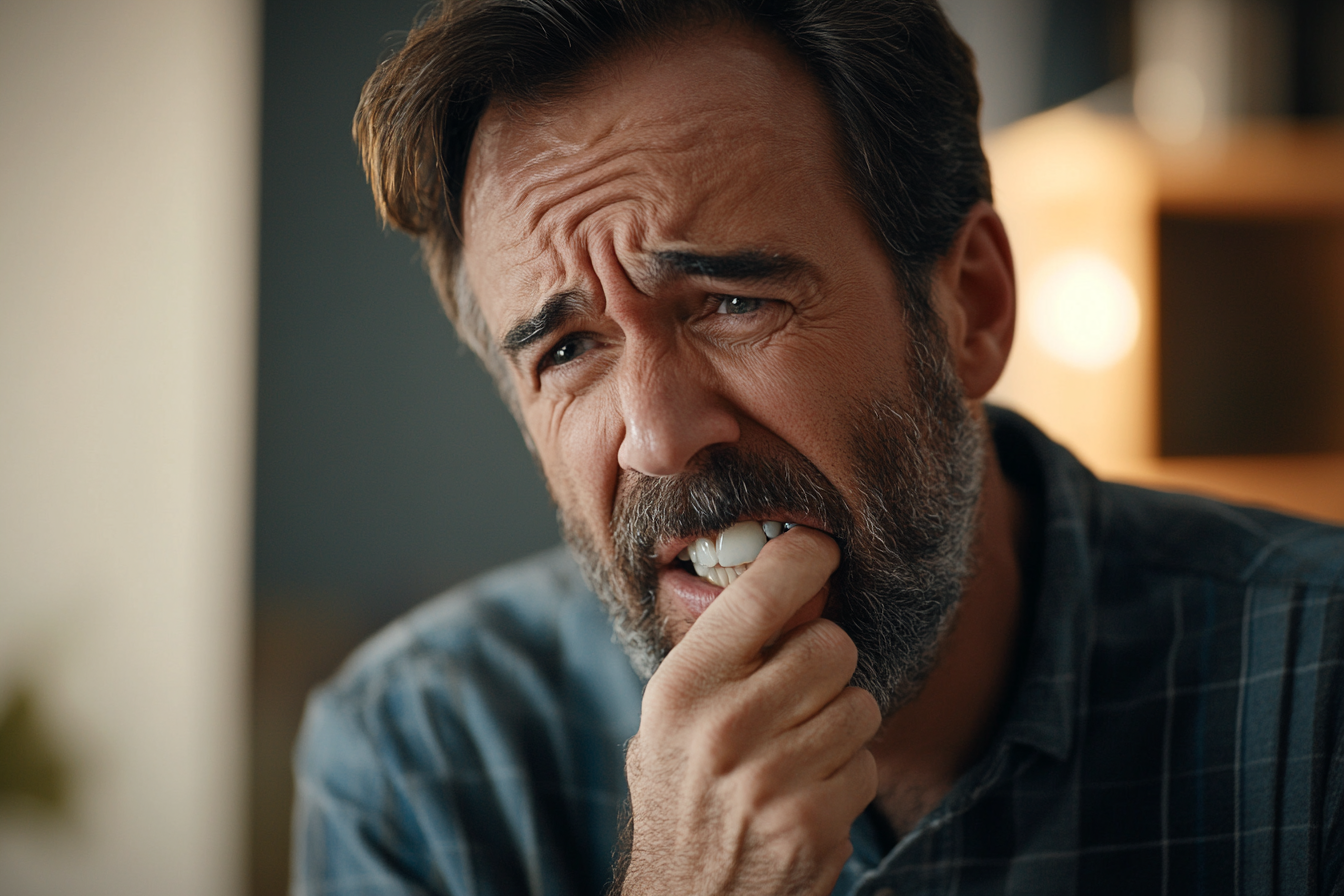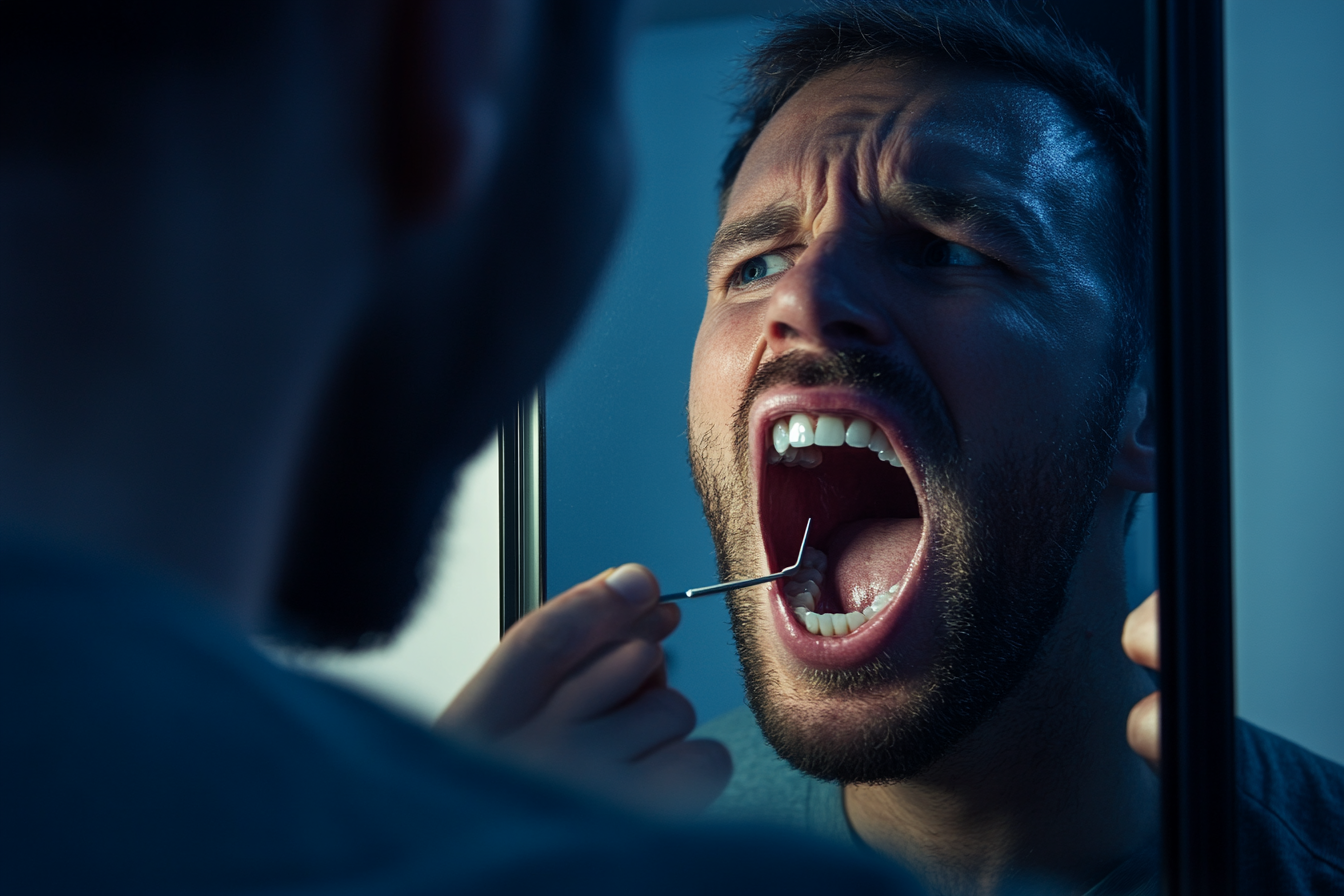- Elevate your head to reduce swelling and promote faster healing.
- Use pain medications as prescribed to manage discomfort during sleep.
- Avoid sleeping flat or on your side for the first few days after surgery.
- Stay hydrated and avoid smoking or alcohol, which can hinder recovery.
- Prevent dry sockets by following aftercare instructions like avoiding straws and not disturbing blood clots.
How to Sleep After Wisdom Teeth Removal
Elevate Your Head
Use multiple pillows to keep your head at a 45-degree angle.
Use Cold Compresses
Apply ice packs wrapped in cloth for 15-20 minutes to reduce swelling and numb the area.
Take Pain Medication
Use prescribed pain relievers as directed to manage discomfort and help you sleep better.
Sleep on Your Back
Avoid side or stomach sleeping to prevent pressure on the extraction site.
Create a Relaxing Environment
Keep your room cool and dark. Use white noise or soft music to promote better sleep.
Salt Water Rinse
After 24 hours, gently rinse with warm salt water before bed to keep the area clean.
What to Avoid
Avoid straws, smoking, alcohol, and hard/crunchy foods. These can disrupt healing and cause complications.
Remember: If you experience severe pain, excessive bleeding, or signs of infection, contact your dentist immediately.
Follow these tips for a comfortable recovery and better sleep after wisdom teeth removal.
Introduction
Wisdom teeth removal can cause discomfort that makes it difficult to sleep. However, following proper post-surgery practices can help you rest comfortably and support faster healing. This guide provides essential tips on how to sleep after wisdom teeth removal.
How to Sleep After Wisdom Teeth Removal

Many patients experience pain, swelling, and discomfort after surgery, which can make sleeping challenging. Strategies like elevating your head, managing pain effectively, and creating a conducive sleep environment can significantly improve your recovery.
Why Sleeping After Wisdom Teeth Removal Is Important
A good night’s sleep is crucial for a quick recovery after surgery. It allows the body to repair tissues and strengthen its immune system while sleeping. When you sleep well, you reduce the risk of complications like infections and dry sockets. Here are some common symptoms after wisdom teeth removal that can affect your sleep:
Common Symptoms After Wisdom Teeth Removal
| Symptom | Description |
|---|---|
| Pain | Mild to moderate discomfort that increases after the anesthesia wears off. |
| Swelling | Common around the cheeks and jaw, peaking within 24-48 hours. |
| Bleeding | Light bleeding or oozing at the extraction site is controllable with gauze. |
| Nausea | Caused by anesthesia or pain medications, typically short-lived. |
Understanding and managing these symptoms can ensure better sleep and faster recovery.
More:-
- How Much Does It Cost to Bond Teeth?
- How to Tighten a Loose Tooth at Home
- How to Get Food Out of Wisdom Tooth Hole
Effective Sleep Positions After Wisdom Teeth Removal
Proper sleeping positioning is essential for reducing pain and promoting healing. The position you sleep in can affect your recovery in multiple ways.
Sleep With Your Head Elevated

Elevating your head helps reduce swelling and improves blood flow away from the extraction site, promoting faster healing.
- How to do it: Prop yourself with two or more pillows to keep your head elevated at a 45-degree angle. You can also use a wedge pillow for added comfort.
| Sleep Position | Benefits |
|---|---|
| Elevated Head | Reduces swelling and helps prevent blood pooling in the head. |
| Sleeping on Back | Minimizes pressure on the extraction site and prevents discomfort. |
Avoid Sleeping on Your Side or Stomach

Sleeping on your side or stomach can increase pressure on the extraction area and dislodge the blood clot, leading to a dry socket.
- Why avoid it? Sleeping flat can cause blood to pool at the extraction site, increasing swelling and discomfort. Additionally, pressure from the pillow can disturb the blood clot.
Managing Pain for Better Sleep
Pain is one of the most common reasons patients struggle to sleep after wisdom teeth removal. Taking proper pain management steps can help you rest more comfortably.
Take Pain Medication as Prescribed
Pain medications reduce discomfort and make sleep easier. Follow your surgeon’s instructions carefully.
- What to use: Common pain relievers include ibuprofen and acetaminophen. In some cases, more potent prescription medications may be provided.
Use Cold Compresses
Cold therapy can help reduce swelling and numb the area, making it easier to fall asleep.
- How to apply: Place an ice pack wrapped in a cloth on your cheek near the extraction site for 15-20 minutes. Ensure that you do not directly apply ice to your skin.
| Pain Management Tip | Benefit |
|---|---|
| Pain Medications | Reduces discomfort, making it easier to rest. |
| Cold Compresses | Reduces swelling and numbs the area for temporary relief. |
Avoid Dry Sockets for a Better Night’s Sleep
A dry socket occurs when the blood clot at the extraction site becomes dislodged, exposing the bone and nerves. It can cause severe pain and delay healing, making it difficult to sleep.
Tips to Prevent Dry Socket
- Avoid straws: The suction created when using a straw can dislodge the blood clot.
- Do not smoke: Smoking interferes with healing and increases the risk of dry sockets.
- Gently rinse your mouth: Use warm salt water to rinse, but avoid vigorous spitting or rinsing in the first 24 hours.
| Action | Risk Reduction |
|---|---|
| Avoid Straws | Prevents dislodging the blood clot. |
| Do Not Smoke | Reduces the risk of delayed healing and infection. |
Creating a Sleep-Friendly Environment
A calming and comfortable environment can make sleeping easier after wisdom teeth removal.
Keep the Room Cool and Dark
The dark room helps your body relax and promotes better sleep. You can also use a fan or white noise machine to block distractions.
Establish a Relaxing Bedtime Routine
Make sure to participate in calming activities before bed, such as reading or listening to soothing music. Avoid screen time and caffeine in the hours leading up to sleep.
| Environment Tip | Benefit |
|---|---|
| Cool, Dark Room | Helps your body relax for more restful sleep. |
| White Noise | Reduces distractions and promotes a peaceful environment. |
Maintaining Proper Oral Care Before Bed
Caring for the extraction site before bed is crucial for preventing infections and ensuring a smooth recovery.
Rinse with Salt Water
After the first 24 hours, gently rinse your mouth with salt water to keep the area clean and reduce the risk of infection.
- How to do it: Mix ½ teaspoon of salt with 8 ounces of warm water and gently swish it around your mouth without spitting forcefully.
More:-
- How to Speed up Wisdom Teeth Recovery
- How to Fix a Cracked Tooth Naturally
- How to Relieve Pain from Dental Implant
Avoid Brushing Near the Extraction Site
Brushing too close to the extraction site can disturb the healing process. Use a soft-bristled toothbrush and avoid the surgical area for at least 24 hours.
| Oral Care Routine | Importance |
|---|---|
| Saltwater Rinse | Helps keep the extraction site clean and reduces inflammation. |
| Gentle Brushing | Prevents irritation and dislodging of the blood clot. |
What to Avoid Before Sleeping
Certain activities can interfere with your recovery and disrupt your sleep. It’s essential to avoid these for at least the first few days after your wisdom teeth removal:
Do Not Eat Hard or Crunchy Foods
Avoid hard foods that cause abrasions to the extraction site. Make sure you eat soft, easy-to-chew foods. Foods like yogurt, applesauce, mashed potatoes, and smoothies are good options.
| Foods to Eat | Foods to Avoid |
|---|---|
| Soft Foods: Yogurt, mashed potatoes, smoothies | Hard/Crunchy Foods: Chips, nuts, seeds |
Avoid Alcohol and Smoking
Both alcohol and smoking can interfere with healing and increase the risk of complications like dry socket and infection.
Monitoring for Complications
While most people recover smoothly from wisdom teeth removal, monitoring your symptoms and consulting your dentist if you notice anything unusual is essential.
When to Contact Your Dentist
- Severe pain: If your pain increases or becomes unbearable, this may indicate a problem, such as a dry socket.
- Excessive bleeding: Light bleeding is normal, but excessive or prolonged bleeding requires medical attention.
- Signs of infection: Watch for symptoms such as fever, swelling, or pus near the extraction site.
Conclusion
Getting a good night’s sleep after wisdom teeth removal is essential for a smooth recovery. You can sleep more comfortably and heal faster by following these strategies—elevating your head, managing pain, and preventing dry sockets. Always consult your dentist for personalized advice and report any concerns that may arise during your recovery.
This comprehensive guide ensures you follow the proper steps to sleep better and recover efficiently after wisdom teeth removal.



